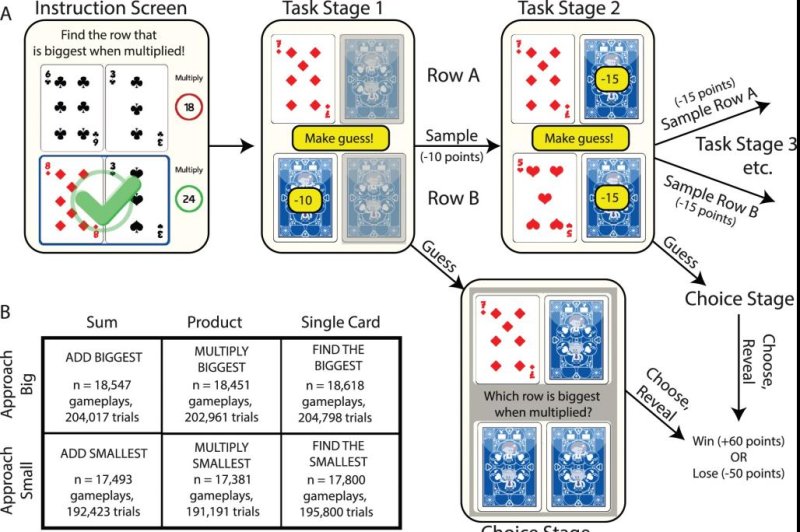A new study involving an online card game suggests humans are biased in their information sampling by the prospects of reward. Scientists have dubbed the bias the "Pavlovian approach." Photo by Laurence T. Hunt, et al./PLOS ONE
LONDON, Nov. 11 (UPI) -- Most research looking at how and why people sample information focuses on "confirmation bias," the idea that people self-select information that confirms what they already believe.
But new research suggests there are other factors at play, including deep-seated evolutionary factors. In a new study published in the journal PLOS ONE, scientists present the "Pavlovian approach" as another explanation for bias in information sampling.
The Pavlovian approach is the idea that people select items and information associated with a reward.
The new theory's name is an allusion to the famed experiments designed by Ivan Pavlov, who showed one could induce canine salivation simply by ringing a bell; the dogs had been trained to associate the bell with food.
In the new experiment, researchers recruited 30,000 people to play a card game on their smartphones. Players were asked to pick between two stacks of cards, the goal being to select the stack with the most high cards. A correct selection earned points -- points the players could use to sample cards from each stack during the next go-round.
Scientists built a model to determine the ideal way to play the game. They then compared the computer model's optimal game-play decisions to the more then 3 million decisions logged by study participants.
Their analysis showed players were biased by where and how they sought information based on their past success. In other words, how they chose to spend points to sample cards and which stacks they chose to sample were biased by rewards experienced during previous go-rounds.
The model also proved that these biased decisions were irrational based on the logic of the game.
Scientists suggest these biases may be explained by early human ancestors and the decisions about where to hunt and seek shelter, about whether to stay put or go. The natural threats faced by early humans may have forced decision makers to select the most valuable alternative first, and then reconsider as new information became available.
These evolutionary behaviors may explain modern biases, researchers suggest.















